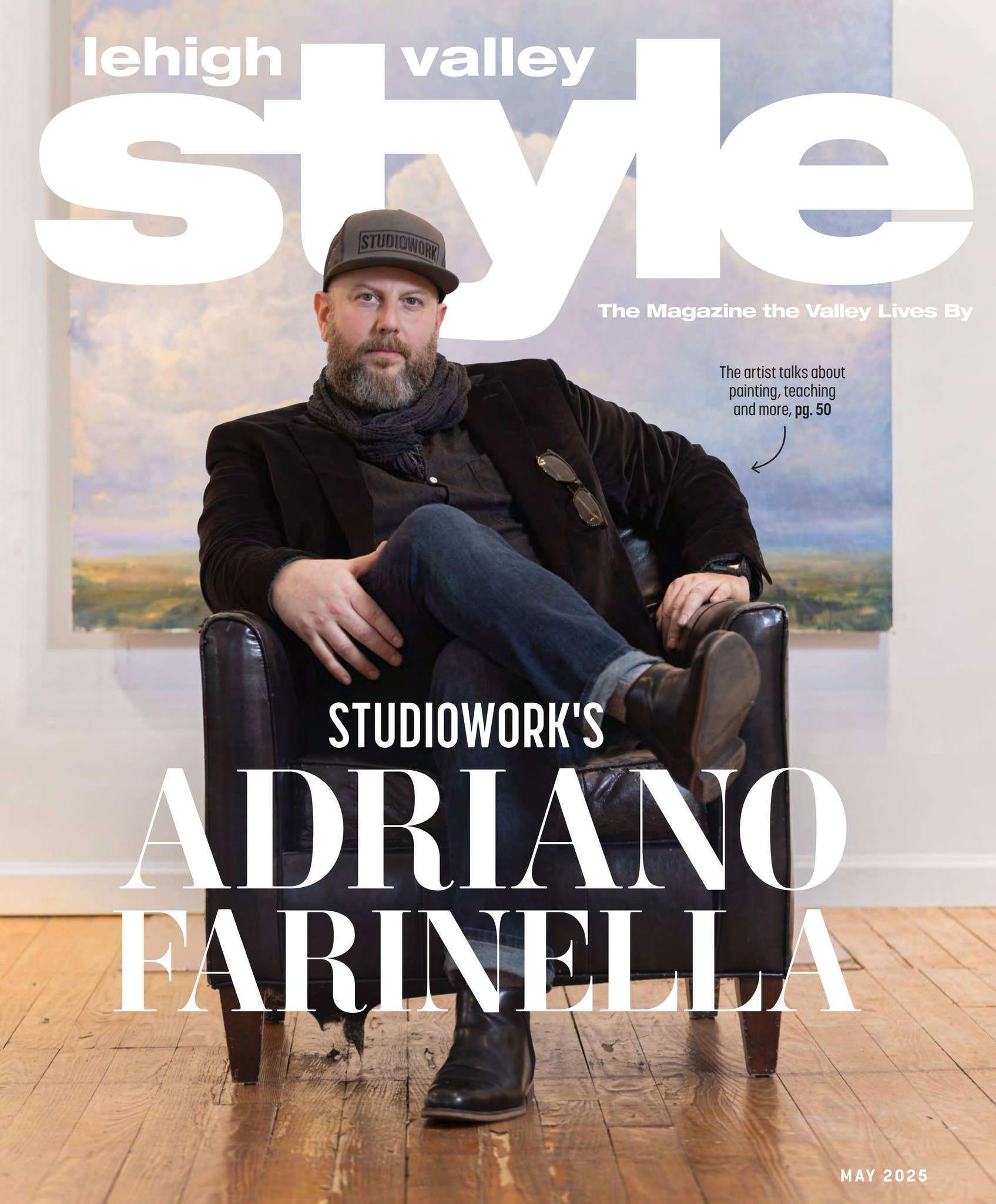The pandemic has had its way with all of us, in one way, shape or form—or many. We know Bolete, and we know Mister Lee's in the Easton Public Market. What started as a farm-to-table restaurant and a noodle shop, respectively, has attracted devotees whose ardor is as authentic as it is unparalleled. And let's not forget Silvershell, the fresh-fish counter with fantastic fish sandwiches you can eat right there and—shhhh—home to one of the best griddled burgers around.
But now, with Mister Lee's in Southside Bethlehem, husband-and-wife owners Lee Chizmar and Erin Shea have brought to Asian-food lovers another magical dining hybrid in a neighborhood they always wanted to be a part of. “It's like Mister Lee's and Bolete had a baby,” says Shea.
She could have added (but didn't), however, that the pregnancy took a very long time to come to term (thanks, COVID). Mister Lee's was supposed to open in May 2020. But because Bolete had been undergoing renovations while Mister Lee's was taking shape in a very real way, Chizmar and Shea easily transitioned their staff from one restaurant to another. It's a small blessing during a pandemic when finding solid, consistent staff has been very challenging for the restaurant industry. Operating more than one eatery with a team stretched thin is like playing with a jigsaw puzzle whose pieces are constantly changing shape or disappearing. “We didn't have to overextend current staff, just slid them into Mister Lee's. For now,” says Shea.
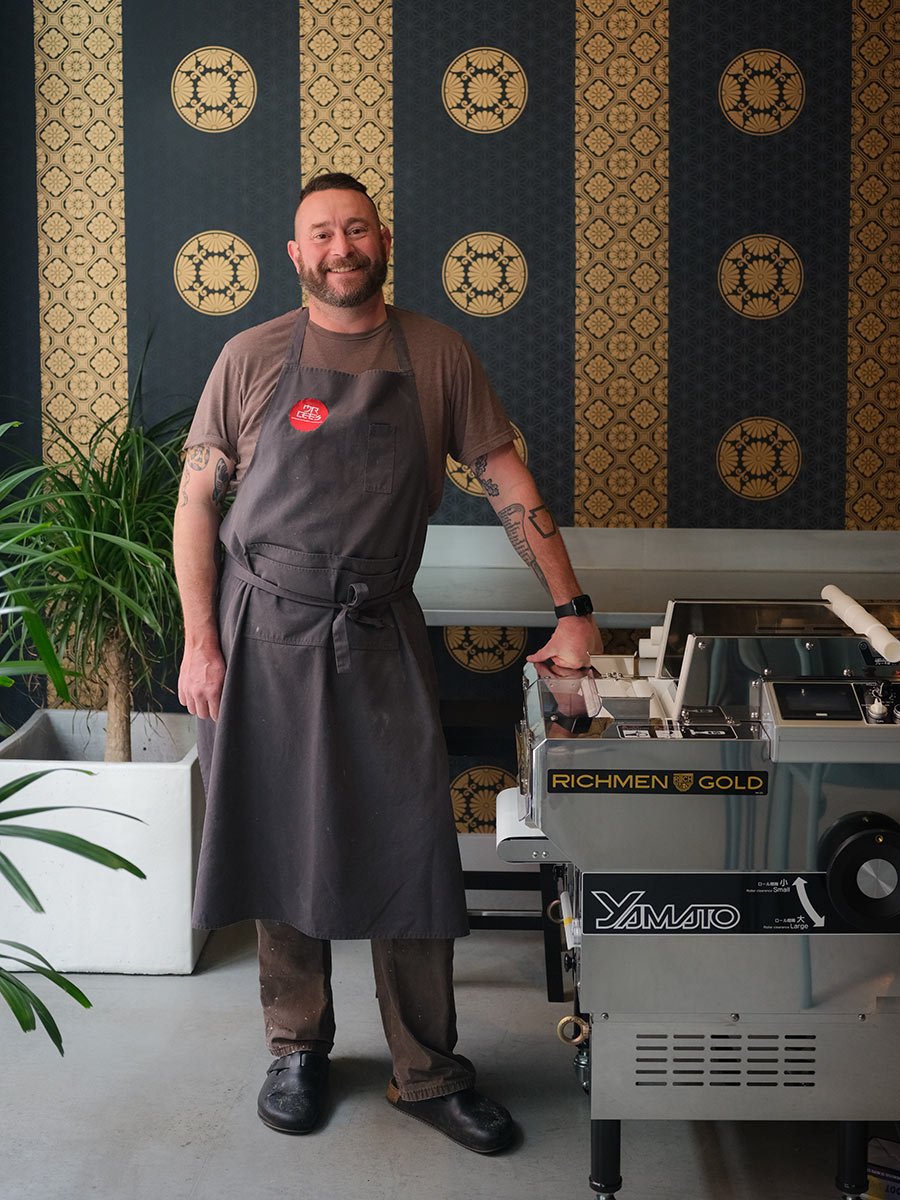
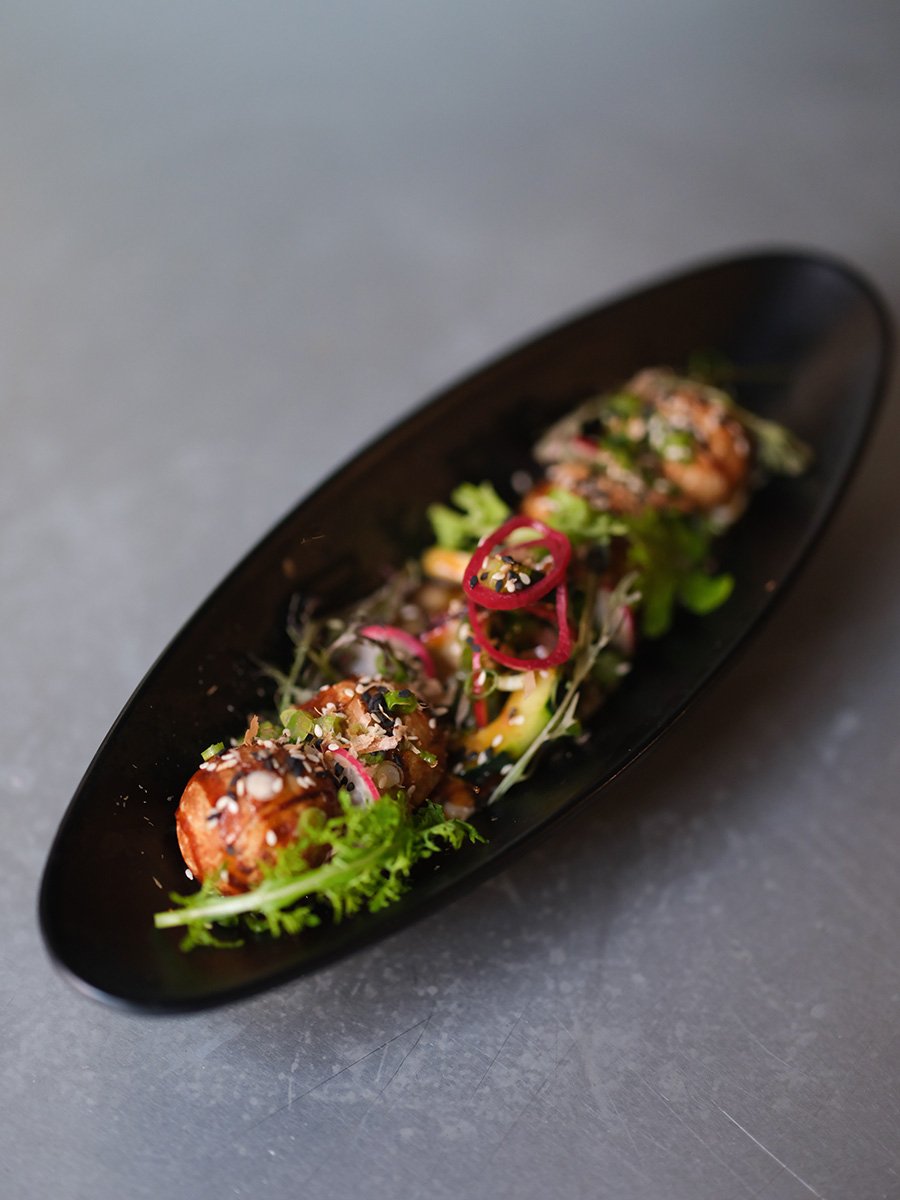
She's right to liken Mister Lee's in Bethlehem to culinary offspring, insofar as it's a full-fledged restaurant with table service, a bar and full cocktail menu, and a much bigger menu than what can fit on a small chalkboard at the Easton Public Market location. But it's also more than a logical expansion of what's keeping noodlers happily slurping at the market. In Bethlehem, some similar items grace the menu, but it's much more expansive; the open kitchen literally mirrors that. Choose among appetizers, dumplings, salads, sandwiches and cold or hot ramen. You can make reservations and dine at communal tables in a very open dining room with pieces designed by Chaz Hampton, who also designed the aesthetics at Easton Public Market. (There's bar seating, too, reserved for walk-ins.)
The dishes possess thoughtful layers of surprising flavors, and demonstrate a lightning-strike precision of presentation, one that can only be borne out of knowing what you're doing in the kitchen. And then tweaking everything continuously, and finding new ways to express the inherent capabilities of each ingredient. That sounds highfalutin, but we expect to be surprised by Chizmar's food—which is a high bar to continue to set for both those in the kitchen and those who consume the creations in the execution of this Asian concept. More specifically, those items are not just ramen, it's not just Korean steamed buns, it's not just generic dumplings with generic Asian-ness dressed around it.
Instead, it's chicken dumplings with ginger, pickled pears, garlic, soy, shallot, cilantro and pistachio; the nut is the surprise wild card here. It's the smoky-crispy-tangy-spicy takoyaki street dumplings that are Shea's favorite, a dish so compelling I gave some to one of my sons, and he gobbled it up without knowing it was octopus (he trusts me, and I trust Mister Lee's—that's how you get kids to eat new things). And it's also the extensive cold and hot ramen options, and the large, unwieldy and deeply satisfying Korean fried chicken sandwich, with togarishi potato chips that are so thin their salty goodness lands somewhere between gently shattering and dissolving in your mouth. And it's the homemade noodle we haven't tasted yet, from a gorgeous piece of machinery they've given a name (like you do)—Yoshimi (after the Flaming Lips album bearing the same name).
We are lucky to be able to witness what feels like a next-level Asian dining experience.
Here's the risky statement. If we assume authenticity in any given cuisine is an inherent genetic birthright of one's race, religion or creed, Lee Chizmar really has no business cooking Asian food. But let's be respectfully color-blind for a moment, and assume that something delicious can come from anyone, regardless of who they are. (Yes, this is kind of like Ratatouille, but go with me).
If we can agree that this is possible, and that it's not disrespectful to the cuisine (or, in this case, cuisines) itself, we may be beyond such questions of cultural authenticity in the kitchen. After all, to put it a little more crassly, if New York City is full of non-Italians (not even Italian Americans) making some of the best pizza ever, who are we to quibble with a middle-aged white guy from Pennsylvania who just happens to be killing it with locally sourced but globally inspired Asian fare?
I asked Chizmar what it is about Asian food that has captivated him, and he says he hasn't quite ever really been able to explain it—not to his own satisfaction, it seems. “It's the evolution of my cooking,” he says, but it's also globalization of menus, the changing tastes of Americans and the availability of the ingredients that help transform a chef's approach. It's all that, but also inchoate things and even abstract things, too, that compel him.
“It's a whole new color to work with, and after you've cooked for as long as I have, it gives you the ability to hone in a little bit more,” Chizmar says. And once the noodle machine is up and running, changing those up (mushroom noodles? beet noodles?) will bring the dishes to another level. Every ingredient that's on the plate (or in a bowl) is there for a specific reason. Even the ingredient's placement is key, a way to guide your eye (and your chopsticks) toward the experience of the dish. Take, for example, the seafood ramen. It is inarguably the consummate dish of all the Bolete family establishments; you have local veggies in ramen that you might not see otherwise (Brussels sprouts, cauliflower and greens galore), but also tempura veggies, smoked scallop rice ball, tempura shrimp so sweet and fresh and, of course, a 60-minute egg. Everything rests over noodles and it's all suspended in a lobster dashi broth. The seafood ramen has the artful presentation and local love shown at Bolete, the language of Asian food in the bowl, and years cooking fresh fish and seafood in Boston (to which Silvershell is an homage)—all in one. It's also the ramen dish that keeps on giving; as you poke around with your chopsticks, more ingredients are unearthed. It's impossible to be bored eating Chizmar's food.
“Asian food feels a little bit more profound in terms of the flavors. They hit you, they're more assertive,” Chizmar explains. The word “assertive” is carefully chosen and feels apt; the food he and his team have rendered here at Mister Lee's wants you to know what it is, know what you're tasting and understand that the interaction among all the elements of your palate are standing to attention to experience something novel, even among what's familiar. That's what keeps diners coming back—and creating those experiences keeps chefs going.
At the end of the day, the food is spectacular (and we haven't even touched the cocktail menu here). You don't have to do a deep dive in your brain about it. But this particular eater and writer has concluded that those flavors really are that profound, if they can inspire such deep reflection.
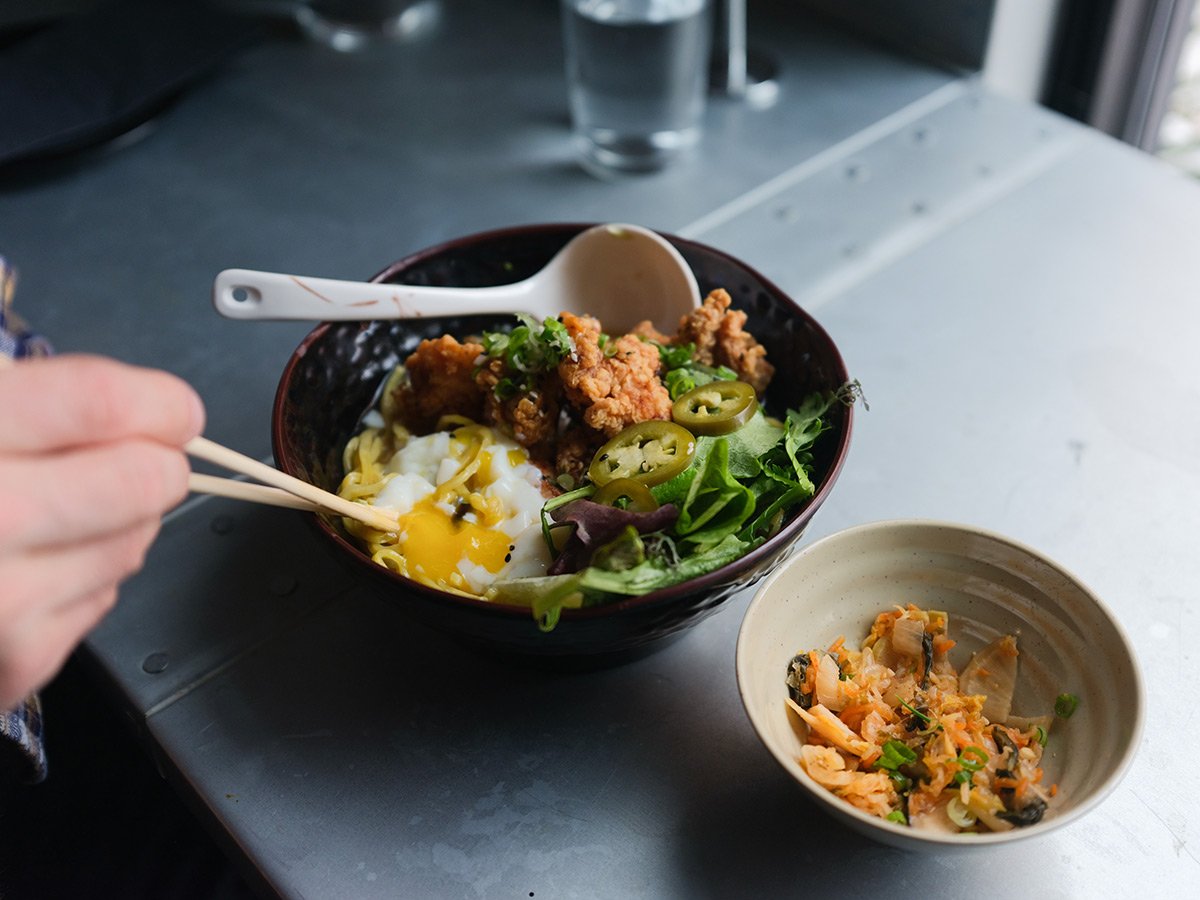

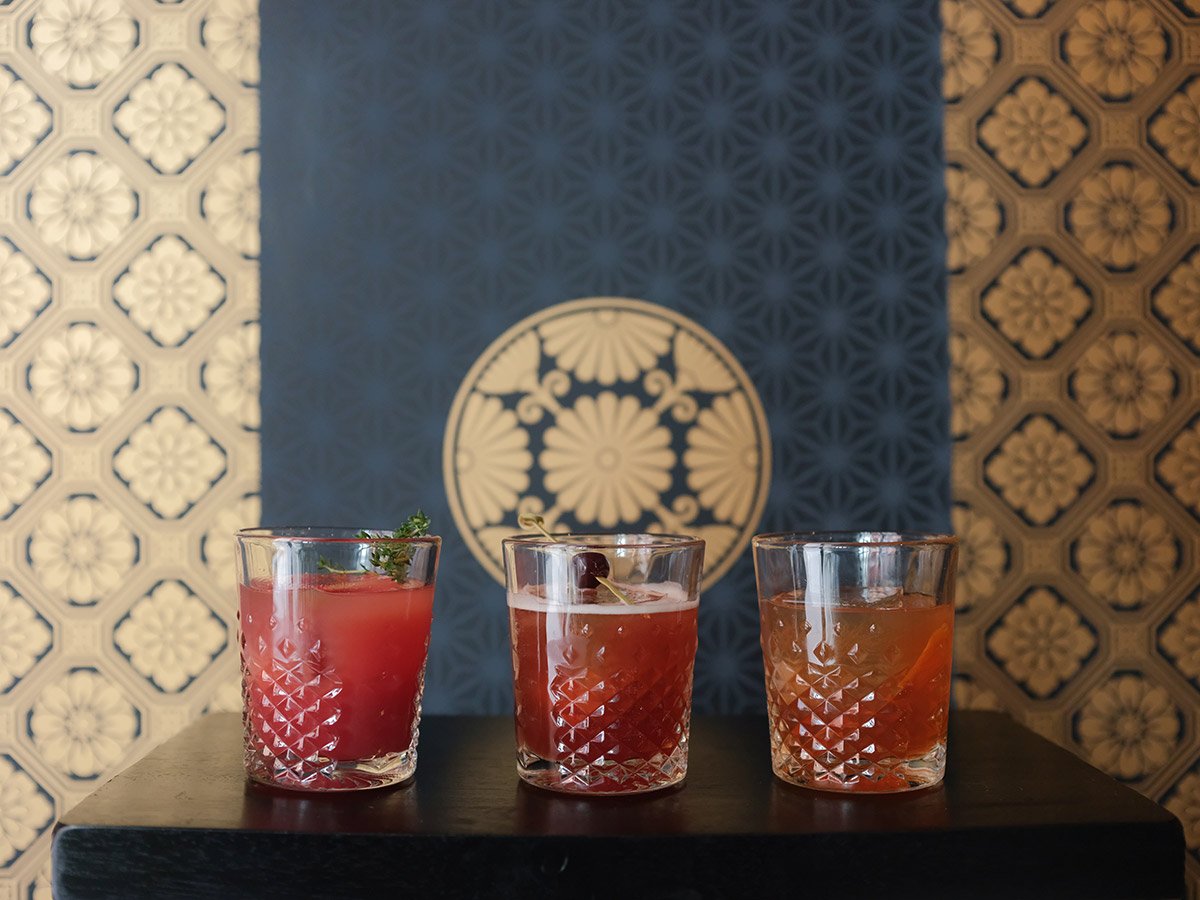
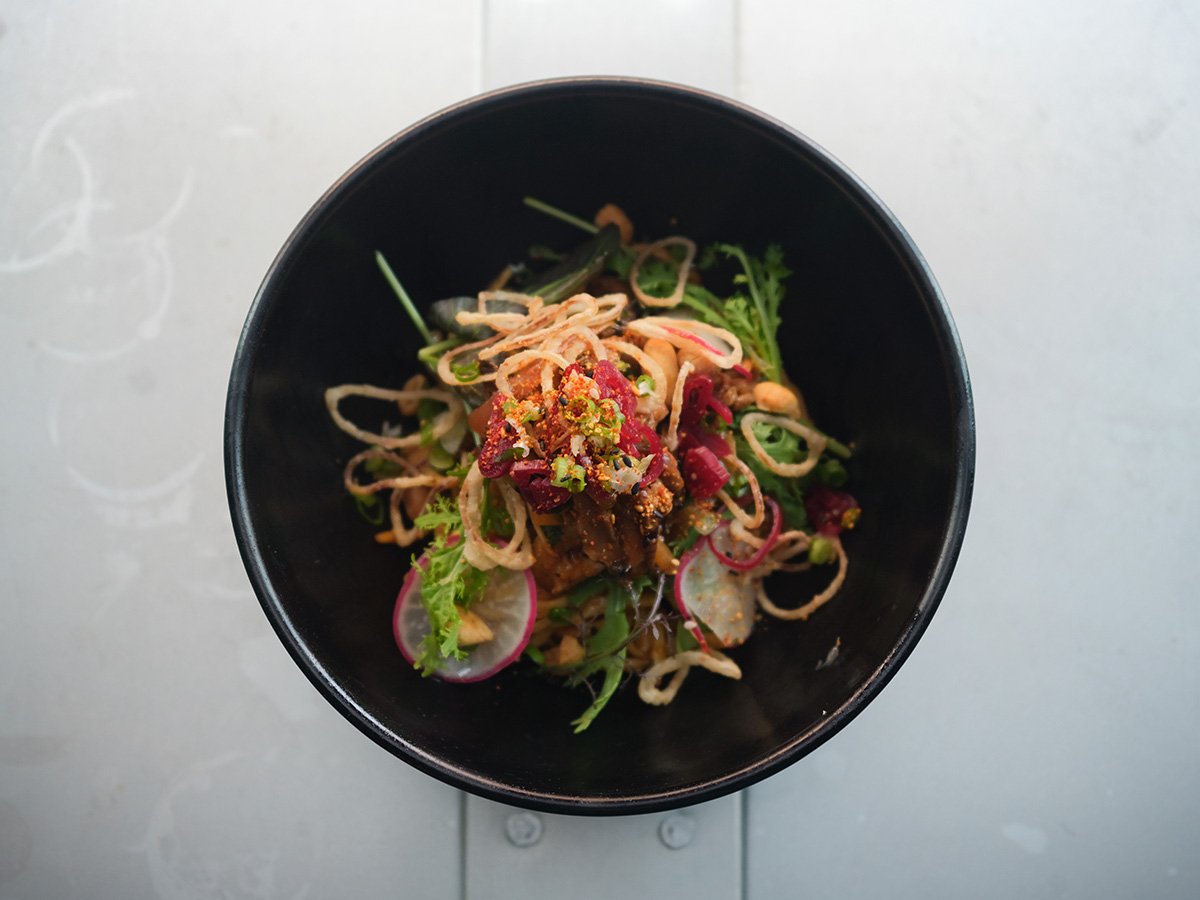
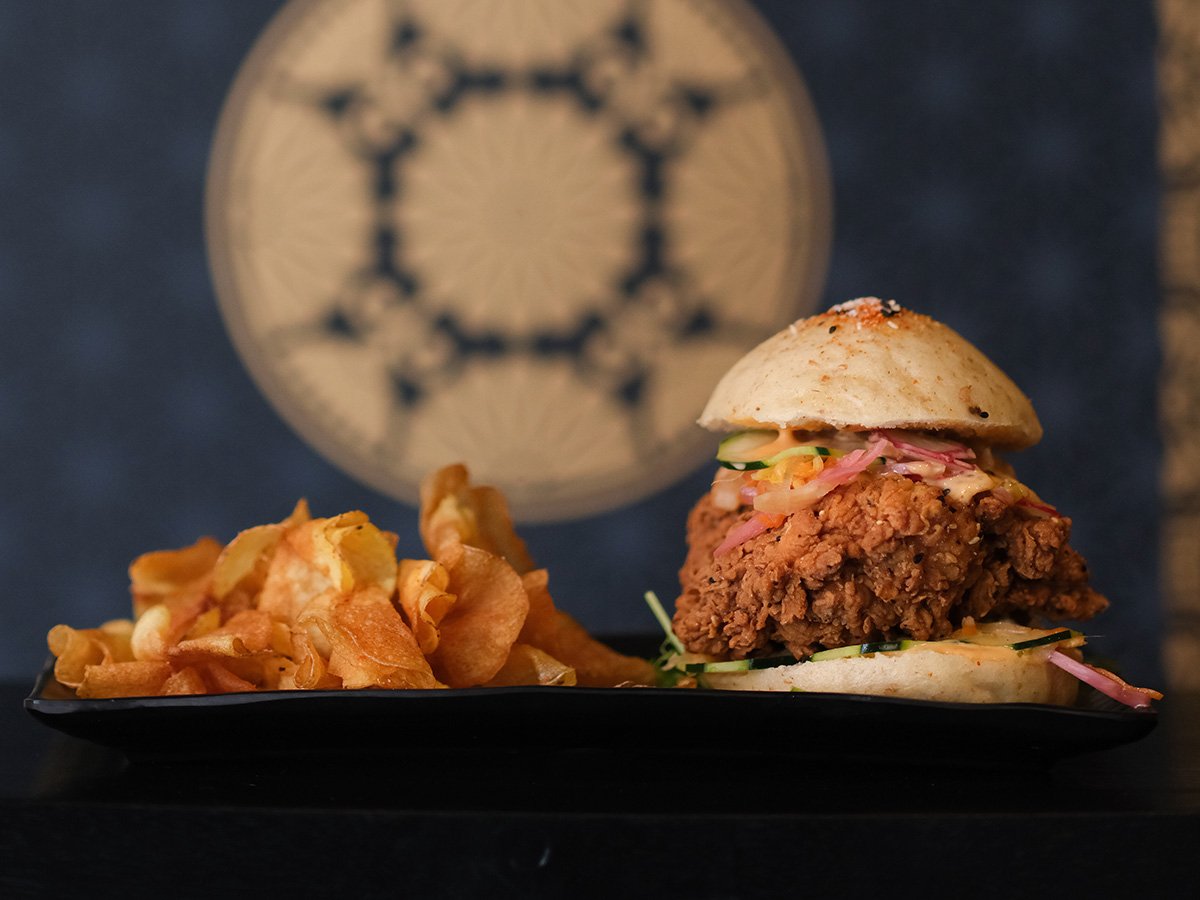
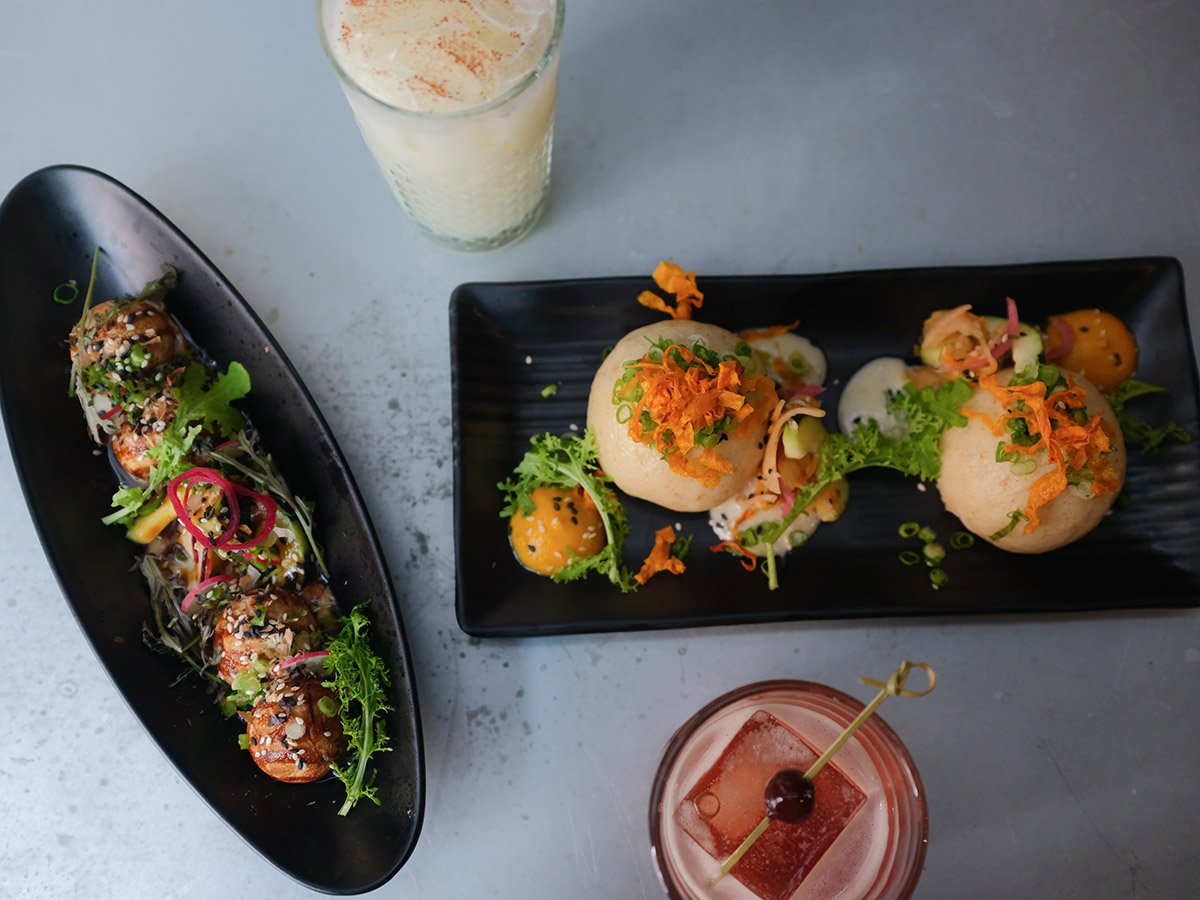
Mister Lee's Bethlehem
512 E. 3rd St., Bethlehem | 610.900.4888 | misterleesnoodles.com
*Please check their website and/or social media for current operating hours and procedures.
Hours
Open Wednesday through Saturday for lunch and dinner; Wed. & Thurs.: 11:30 a.m.–2:30 p.m. & 5–9 p.m.; Fri.: 11:30 a.m.–2:30 p.m. & 5–9:30 p.m.; Sat.: noon–3 p.m. & 5–9:30 p.m.
Reservations
Definitely accepted; tables are for communal dining; all bar and counter spaces are for walk-ins.
Parking
Street parking is challenging (but not impossible) because of nearby construction; give yourself ample time to find a spot.
What to Order
It's hard to make a bad choice here; you just have to come back multiple times. You don't want to miss the steamed buns. Of course, they're making the dough in-house (and it's the same dough they use for their Korean fried chicken sandwich, which may very well need to be deconstructed in order to successfully consume it). There are two types—curried goat, sourced from Kreeky Tree Farm, and mushroom, sourced from Primordia Mushroom Farm. In particular, Erin Shea loves the takoyaki, Japanese street dumplings. If you're looking for some sweet heat, try the spicy beef salad, and definitely add noodles to the dish.
Have a seat at the bar and Stephen will take care of you with one of the many cocktails. The Southside Painkiller is tropical, with white rum, coconut milk and citrus flavors; Damson in Distress is a surprising combo of Damson plum gin, roasted grapefruit juice, honey syrup and UME liqueur. But do we need to go on about those? Funk Brewing does a special brew of rice lager just for Mister Lee's, called Special Sauce, and there are plenty of other local beers, along with nonalcoholic drinks, reds, whites and rosés by the glass.
Published as "Inside Dish" in the February 2022 edition of Lehigh Valley Style magazine.







